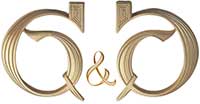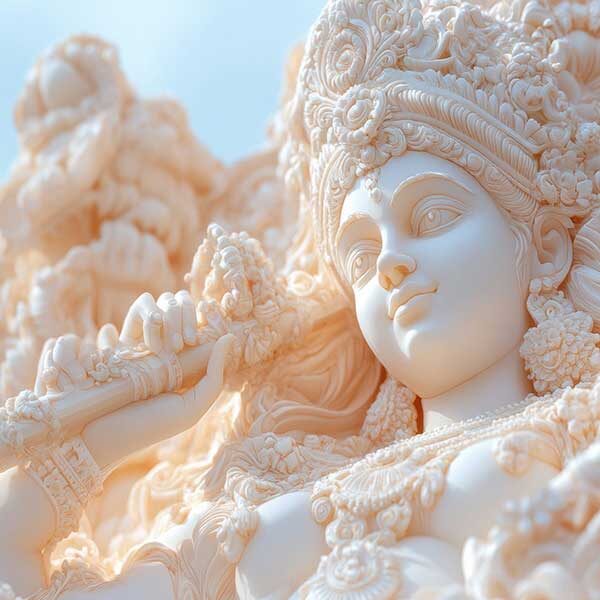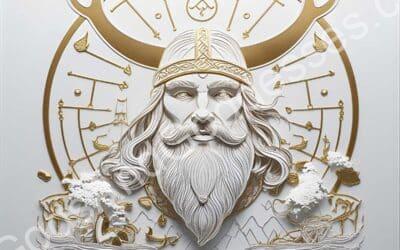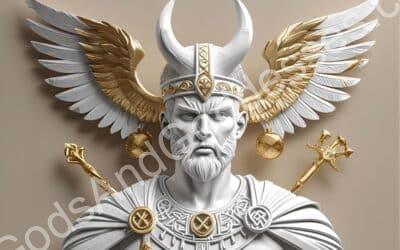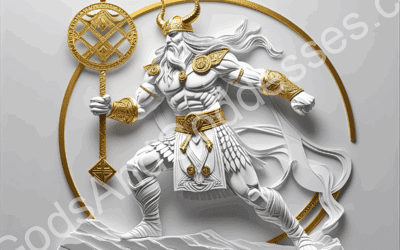Receive Our Newsletter
Resources and reminders to
live your Divine Destiny™
Introduction: Why Norse Gods Matter
Unlike the perfect gods of some traditions, the Norse gods lived with fate, struggle, and mortality. They fought giants, guided mortals, and prepared for the final battle of Ragnarök—the doom of the gods. Fierce, wise, and often flawed, these deities ruled the Nine Realms from their home in Asgard.
The Norse gods are among the most fascinating figures in world mythology. At GodsAndGoddesses.com, we explore Norse gods within the wider world of mythology, alongside goddesses and divine archetypes from across cultures. Figures like Odin, Thor, and Freyja reveal how the Vikings understood fate, justice, love, and war.
“In Asgard dwell the gods, who even in their greatness cannot escape fate.”
Key Takeaways About Norse Gods
-
Norse gods embody strength, wisdom, fate, and mortality—they are powerful yet vulnerable.
-
The pantheon is divided into Æsir (war and order) and Vanir (fertility and prosperity), reflecting the Norse view of life as a balance of forces.
-
Famous figures include Odin, Thor, Loki, and Freyja, each tied to wisdom, protection, chaos, or love.
-
The Norse myths, preserved in the Poetic Edda and Prose Edda, reveal a cosmos connected by Yggdrasil, the World Tree.
-
Unlike many traditions, Norse gods face an ending: Ragnarök, where even the divine must fall before rebirth.
Explore Norse God Stories
-
Odin: Norse God of Wisdom, Magic, and War → The All-Father who sacrificed for knowledge.
-
Thor → Thunder god and protector of gods and mortals.
-
Freyja: Norse Goddess of Love, War, and Magic → Leader of the Valkyries and keeper of passion and power.
-
Njord: Norse God of the Sea, Wealth, and Prosperity → Lord of waters and peace.
The World of Norse Mythology
Norse mythology, preserved in the Poetic Edda and Prose Edda, describes a universe divided into Nine Realms, all connected by the great World Tree, Yggdrasil. The gods of Asgard stood at the center of this cosmos, but their influence extended everywhere—from Midgard (the world of humans) to Jotunheim (the land of giants).
See also: Yggdrasil: The World Tree of Norse Mythology.
Major Norse Gods
Odin: The All-Father
-
Ruler of Asgard, god of wisdom, war, and magic.
-
Sacrificed his eye at Mimir’s well for knowledge.
-
Seeks wisdom to prepare for Ragnarök.
Thor: God of Thunder
-
Wielder of Mjölnir, the mighty hammer.
-
Protector of gods and mortals against giants.
-
Symbol of strength, courage, and loyalty.
Loki: The Trickster
-
Shapeshifter and agent of chaos.
-
Brings both gifts and disasters to the gods.
-
Plays a pivotal role in the coming of Ragnarök.
Freyja: Goddess of Love and War
-
Leader of the Valkyries, chooser of the slain.
-
Embodies love, beauty, fertility, and magic.
-
Represents the complexity of divine femininity.
The Æsir and the Vanir
The Norse pantheon was divided into two families:
-
Æsir – Gods of war, order, and power (Odin, Thor, Tyr).
-
Vanir – Gods of fertility, prosperity, and nature (Freyja, Freyr, Njord).
Their mythical war and eventual peace symbolized the Norse understanding that life requires both power and fertility, war and peace.
Symbolism of Norse Gods
-
Odin’s Eye → Wisdom through sacrifice.
-
Thor’s Hammer (Mjölnir) → Protection and divine authority.
-
The Valkyries → Fate, battle, and the afterlife.
-
Yggdrasil → The interconnectedness of all realms.
Norse Gods and Ragnarök
One of the most distinctive features of Norse mythology is that even the gods were doomed. At Ragnarök:
-
Odin faces the wolf Fenrir.
-
Thor battles the serpent Jörmungandr.
-
Loki leads the forces of chaos.
Though the gods perish, Norse mythology promises renewal—a new world rising after destruction.
Norse Gods in Modern Culture
The Norse pantheon continues to inspire:
-
Literature – From Tolkien to Gaiman.
-
Film and Comics – Marvel’s Thor and Loki.
-
Spirituality – Modern Heathens (Ásatrú) revive Norse god worship.
External resource: World History Encyclopedia – Norse Mythology.
Frequently Asked Questions
Who is the most powerful Norse god?
Odin is king of the gods, but Thor is the strongest warrior.
Are Norse gods immortal?
No. Unlike Greek or Roman gods, Norse deities are mortal and fated to die at Ragnarok.
Who are the Vanir gods?
A group of fertility and prosperity deities, including Freyja, Freyr, and Njord.

Conclusion
The Norse gods embody both power and vulnerability. They are fierce protectors, cunning tricksters, and wise leaders—but they also face the inevitability of fate. From Odin’s wisdom to Thor’s thunder and Freyja’s passion, these deities reveal a mythology where even the divine must face destiny.
Explore more:
“The Norse gods remind us that even the mighty must face destiny.”
Posts About Norse Gods
Njord: Norse God of the Sea, Wealth, and Prosperity
Njord Norse God In the stormy, sea-faring world of Norse Gods, Njord stands apart as a deity of peace, abundance, and prosperity. Unlike Odin the strategist or Thor the warrior, Njord embodies calm...
Tyr: Norse God of War, Justice, and Sacrifice
Tyr Norse God of War Among the Norse Gods, Tyr stands out not for thunder or trickery, but for courage, justice, and sacrifice. He is the god of war and law, revered not as a chaotic destroyer but...
Odin: Norse God of Wisdom, Magic, and War
Odin Norse God Among the Norse Gods, none is as paradoxical or compelling as Odin, the All-Father; he is a seeker of wisdom, a master of magic, and a god of war and prophecy. At...
- Odin God Story - August 24, 2025
- The Story of Ra: Egyptian Sun God and Creator - August 24, 2025
- Kraken: Mythological Sea Monster of the Deep - August 24, 2025
